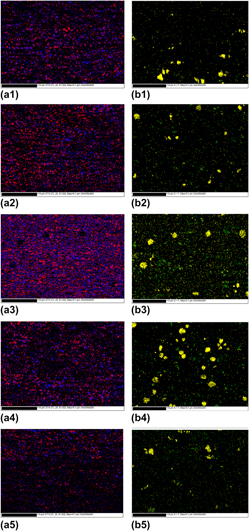Published online by Cambridge University Press: 26 July 2011

Static electropulsing-induced phase transformations of a cold-drawn ZA27 alloy wire were studied by using x-ray diffraction, backscattered scanning electron microscopy, and electron backscattered diffraction (EBSD) techniques. By using EBSD, phases with close microstructure are discriminated, based on transmission electron microscopy determined lattice parameters of phases. Thus, it was quantitatively detected that electropulsing tremendously accelerated phase transformations in two stages: (i) η′S and ε′T decomposed sequentially (in a way of quenching) and (ii) ε′T and η′S formed via reverse decompositions (in a way of up-quenching).